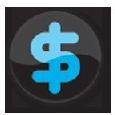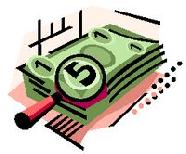
 |
|
| Financial Terms | |
| FCIA |
|
Information about financial, finance, business, accounting, payroll, inventory, investment, money, inventory control, stock trading, financial advisor, tax advisor, credit.
Main Page: tax advisor, money, finance, financial advisor, financial, stock trading, accounting, credit, Also see related: condo, mortgage, home insurance, credit, homebuyer, homebuying, real estate, home, home financing, |
Definition of FCIA
FCIAForeign Credit Insurance Association. A private U.S. consortium of insurance companies that offers
Related Terms:Agency bankA form of organization commonly used by Foreign Banks to enter the U.S. market. An agency Balance of tradeNet flow of goods (Exports minus Imports) between countries. BAN (Bank anticipation notes)Notes issued by states and municipalities to obtain interim financing for Bank collection floatThe time that elapses between when a check is deposited into a Bank account and when the funds are available to the depositor, during which period the Bank is collecting payment from the payer's Bank. Bank discount basisA convention used for quoting bids and offers for treasury bills in terms of annualized Bank draftA draft addressed to a Bank. Bank lineLine of credit granted by a Bank to a customer.  Bank wireA computer message system linking major Banks. It is used not for effecting payments, but as a Banker's acceptanceA short-term credit investment created by a non-financial firm and guaranteed by a Bank for International Settlements (BIS)An international Bank headquartered in Basel, Switzerland, which BankruptcyState of being unable to pay debts. Thus, the ownership of the firm's assets is transferred from Bankruptcy cost viewThe argument that expected indirect and direct Bankruptcy costs offset the other Bankruptcy riskThe risk that a firm will be unable to meet its debt obligations. Also referred to as default or insolvency risk. Bankruptcy viewThe argument that expected Bankruptcy costs preclude firms from being financed entirely Basket tradesRelated: Program trades. Best-interests-of-creditors testThe requirement that a claim holder voting against a plan of reorganization  Block tradeA large trading order, defined on the New York Stock Exchange as an order that consists of Clearing House Interbank Payments System (CHIPS)An international wire transfer system for high-value Coinsurance effectRefers to the fact that the merger of two firms decreases the probability of default on Comparative credit analysisA method of analysis in which a firm is compared to others that have a desired Consortium banksA merchant Banking subsidiary set up by several Banks that may or may not be of the Consumer creditcredit granted by a firm to consumers for the purchase of goods or services. Also called Controlled foreign corporation (CFC)A Foreign corporation whose voting stock is more than 50% owned Counter tradeThe exchange of goods for other goods rather than for cash; barter. CreditMoney loaned. Credit analysisThe process of analyzing information on companies and bond issues in order to estimate the Credit enhancementPurchase of the financial guarantee of a large insurance company to raise funds.  Credit periodThe length of time for which the customer is granted credit. Credit riskThe risk that an issuer of debt securities or a borrower may default on his obligations, or that the Credit scoringA statistical technique wherein several financial characteristics are combined to form a single Credit spreadRelated:Quality spread Crediting rateThe interest rate offered on an investment type insurance policy. CreditorLender of money. Demand line of creditA Bank line of credit that enables a customer to borrow on a daily or on-demand basis. Eligible bankers' acceptancesIn the BA market, an acceptance may be referred to as eligible because it is EurobankA Bank that regularly accepts Foreign currency denominated deposits and makes Foreign currency loans. EurocreditsIntermediate-term loans of Eurocurrencies made by Banking syndicates to corporate and Evergreen creditRevolving credit without maturity. Export-Import Bank (Ex-Im Bank)The U.S. federal government agency that extends trade credits to U.S. Federal credit agenciesAgencies of the federal government set up to supply credit to various classes of Federal Deposit Insurance Corporation (FDIC)A federal institution that insures Bank deposits. Federal Financing BankA federal institution that lends to a wide array of federal credit agencies funds it Federal Home Loan BanksThe institutions that regulate and lend to savings and loan Associations. The Five Cs of creditFive characteristics that are used to form a judgement about a customer's creditworthiness: Flat trades1) A bond in default trades flat; that is, the price quoted covers both principal and unpaid, Floor traderA member who generally trades only for his own account, for an account controlled by him or Foreign banking marketThat portion of domestic Bank loans supplied to Foreigners for use abroad. Foreign bondA bond issued on the domestic capital market of anther company. Foreign bond marketThat portion of the domestic bond market that represents issues floated by Foreign Foreign currencyForeign money. Foreign currency optionAn option that conveys the right to buy or sell a specified amount of Foreign Foreign currency translationThe process of restating Foreign currency accounts of subsidiaries into the Foreign direct investment (FDI)The acquisition abroad of physical assets such as plant and equipment, with Foreign equity marketThat portion of the domestic equity market that represents issues floated by Foreign companies. Foreign exchangeCurrency from another country. Foreign exchange controlsVarious forms of controls imposed by a government on the purchase/sale of Foreign exchange dealerA firm or individual that buys Foreign exchange from one party and then sells it to Foreign exchange riskThe risk that a long or short position in a Foreign currency might have to be closed out Foreign exchange swapAn agreement to exchange stipulated amounts of one currency for another currency Foreign marketPart of a nation's internal market, representing the mechanisms for issuing and trading Foreign market betaA measure of Foreign market risk that is derived from the capital asset pricing model. Foreign Sales Corporation (FSC)A special type of corporation created by the Tax Reform Act of 1984 that Foreign tax creditHome country credit against domestic income tax for Foreign taxes paid on Foreign Forward tradeA transaction in which the settlement will occur on a specified date in the future at a price Full faith-and-credit obligationsThe security pledges for larger municipal bond issuers, such as states and Going-private transactionsPublicly owned stock in a firm is replaced with complete equity ownership by a Government National Mortgage Association (Ginnie Mae)A wholly owned U.S. government corporation Guaranteed insurance contractA contract promising a stated nominal interest rate over some specific time Import-substitution development strategyA development strategy followed by many Latin American Informationless tradestrades that are the result of either a reallocation of wealth or an implementation of an Information-motivated tradestrades in which an investor believes he or she possesses pertinent Insurance principleThe law of averages. The average outcome for many independent trials of an experiment International Bank for Reconstruction and Development - IBRD or World BankInternational Bank for Reconstruction and Development makes loans at nearly conventional terms to countries for projects of high International Banking Facility (IBF)International Banking Facility. A branch that an American Bank Investment bankFinancial intermediaries who perform a variety of services, including aiding in the sale of Investment tax creditProportion of new capital investment that can be used to reduce a company's tax bill Legal bankruptcyA legal proceeding for liquidating or reorganizing a business. Letter of credit (L/C)A form of guarantee of payment issued by a Bank used to guarantee the payment of Line of credit An informal arrangement between a Bank and a customer establishing a maximum loan Line of creditAn informal arrangement between a Bank and a customer establishing a maximum loan Merchant bankA British term for a Bank that specializes not in lending out its own funds, but in providing Money center banksBanks that raise most of their funds from the domestic and international money markets, relying less on depositors for funds. National Futures Association (NFA)The futures industry self regulatory organization established in 1982. OPEC (Organization of Petroleum Exporting Countries)A cartel of oil-producing countries. PIBOR (Paris Interbank Offer Rate)The deposit rate on interBank transactions in the Eurocurrency market Portfolio insuranceA strategy using a leveraged portfolio in the underlying stock to create a synthetic put Posttrade benchmarksPrices after the decision to trade. Prepackaged bankruptcyA Bankruptcy in which a debtor and its creditors pre-negotiate a plan or Pre-trade benchmarksPrices occurring before or at the decision to trade. Private Export Funding Corporation (PEFCO)Company that mobilizes private capital for financing the Private-label pass-throughsRelated: Conventional pass-throughs. Private placementThe sale of a bond or other security directly to a limited number of investors. Private unrequited transfersRefers to resident immigrant workers' remittances to their country of origin as Program tradesAlso called basket trades, orders requiring the execution of trades in a large number of Publicly traded assetsAssets that can be traded in a public market, such as the stock market. Registered traderA member of the exchange who executes frequent trades for his or her own account. Retail creditcredit granted by a firm to consumers for the purchase of goods or services. Reversing tradeEntering the opposite side of a currently held futures position to close out the position. Revolving credit agreementA legal commitment wherein a Bank promises to lend a customer up to a Revolving line of creditA Bank line of credit on which the customer pays a commitment fee and can take Related to : financial, finance, business, accounting, payroll, inventory, investment, money, inventory control, stock trading, financial advisor, tax advisor, credit. |